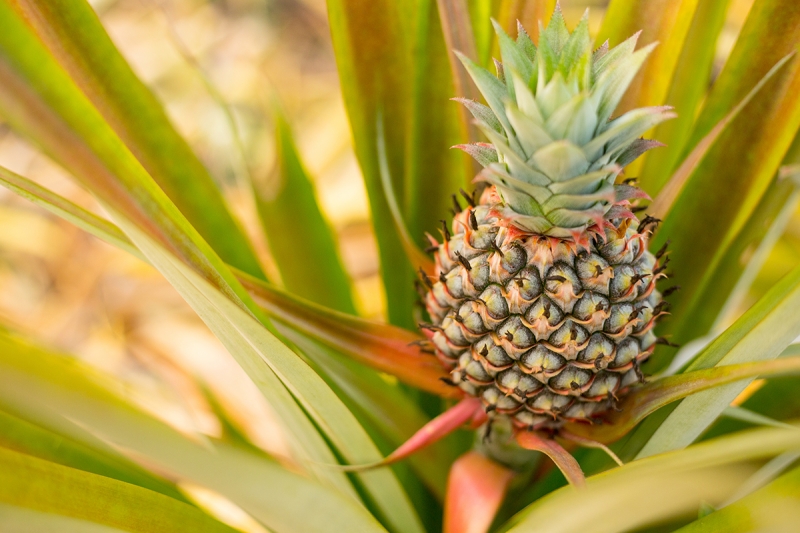Bromelain, a cysteine protease isolated from the pineapple stem, has a very ancient history of traditional use due to its anti-inflammatory and healing effects: arthritis and trauma, burn wounds, ischemic lesions, hypertension, atherosclerosis, inflammatory bowel disease, sinusitis, as well as an antibacterial and antifungal ingredient.
Experimental studies then showed that a unique immunomodulatory action. Firstly, it acts with the under-regulation of the pro-inflammatory prostaglandin E2 (Pge-2), through the inhibition of Nf-kB and cyclooxygenase 2 (Cox-2) and secondly, with the over-regulation of the anti-inflammatory PgeE-1, with activation of inflammatory mediators (interleukin-1β, interleukin-6, tumor necrosis factor-α, and interferon-γ) as an acute response to cellular stress, as well as with inhibition of inflammatory mediators in states of overt cytokine production.
Currently, bromelain has numerous clinical applications precisely in the treatment of inflammation and soft tissue injury.
One clinical study showed that when administered to boxers, it completely eliminated all facial bruising and hematomas of the orbits, lips, ears, chest, and arms in four days, and there are many studies available today on perioperative outcomes of mouth and face on edema, bruising, and pain control.
In particular, bromelain has been shown to be effective in controlling postoperative pain at 48-72 hours after maxillofacial surgery. In fact, bromelain also hydrolyzes bradykinin and reduces kininogen and bradykinin levels in serum and tissue, improving inflammation and edema.
Numerous reports have documented its benefits for sinusitis: administration in children with acute sinusitis reduced the duration of symptoms and accelerated recovery compared with normal treatment regimens, and those who received bromelain demonstrated complete resolution of breathing difficulties and nasal mucosal inflammation.
Bromelain also exerts dose-dependent anticoagulant effects: upregulation of Pge-2 and thromboxane A2 (Txa2), thus leading to a relative excess of prostacyclins; promotion of fibrinolysis by stimulating the conversion of plasminogen to plasmin; and prevention of platelet aggregation. The effect of bromelain on Pge-2 inhibition exceeds that of prednisone and aspirin, presenting very low toxicity and no major side effects.
Administration of bromelain controlled angina attacks and led to the disappearance of symptoms in hypertensive patients; angina attacks reappeared following discontinuation of bromelain after variable periods of time (up to 2 months).
Another study described that bromelain is effective in the treatment of acute thrombophlebitis by reducing walking difficulty and symptoms of inflammation, including skin temperature, soreness, edema, and pain.
In particular, the latter action supports a potential role for bromelain in alleviating Covid-19 symptoms such as cough, fever, and pain and the more severe implications of inflammation, thrombosis, and edema, and clinical evaluations are still ongoing because its anti-inflammatory and anticoagulant properties make it a potential agent that can slow disease progression. Not only that, bromelain modulates T-cell responses in vitro and in vivo and has been shown to be able to enhance antigen-specific T-cell-dependent B-cell antibody responses.
Interestingly, a recent experimental study demonstrated that bromelain inhibits Sars-CoV-2 infection of VeroE6 cells by blocking virus binding and entry into cells via upregulation of Ace-2 and Tmprss2 expression and cleavage of Spike protein, presenting a promising new therapeutic option that warrants further investigation.
Bromelain is still recognized as safe and effective and is used in formulations worldwide for the management of inflammation and edema.
Bibliography
Effect of oral administration of bromelain on postoperative discomfort after third molar surgery. J Craniofac Surg. 2017 Mar;28(2):e191-e197.
Potential role of bromelain in clinical and therapeutic applications. Biomed Rep, 5 (3) (2016), pp. 283-288, 10.3892/br.2016.720
Is bromelain an effective drug for the control of pain and inflammation associated with impacted third molar surgery? Systematic review and meta-analysis. Int J Oral Maxillofac Surg. 2019 May;48(5):651-658.
Bromelain: a review on its potential as a therapy for the management of Covid-19. Niger J Physiol Sci. 2020 Jun 30;35(1):10-19.
The combination of bromelain and curcumin as an immune-boosting nutraceutical in the prevention of severe Covid-19. Metabolism Open, 13 November 2020; Volume 8 (Cover date: December 2020)

